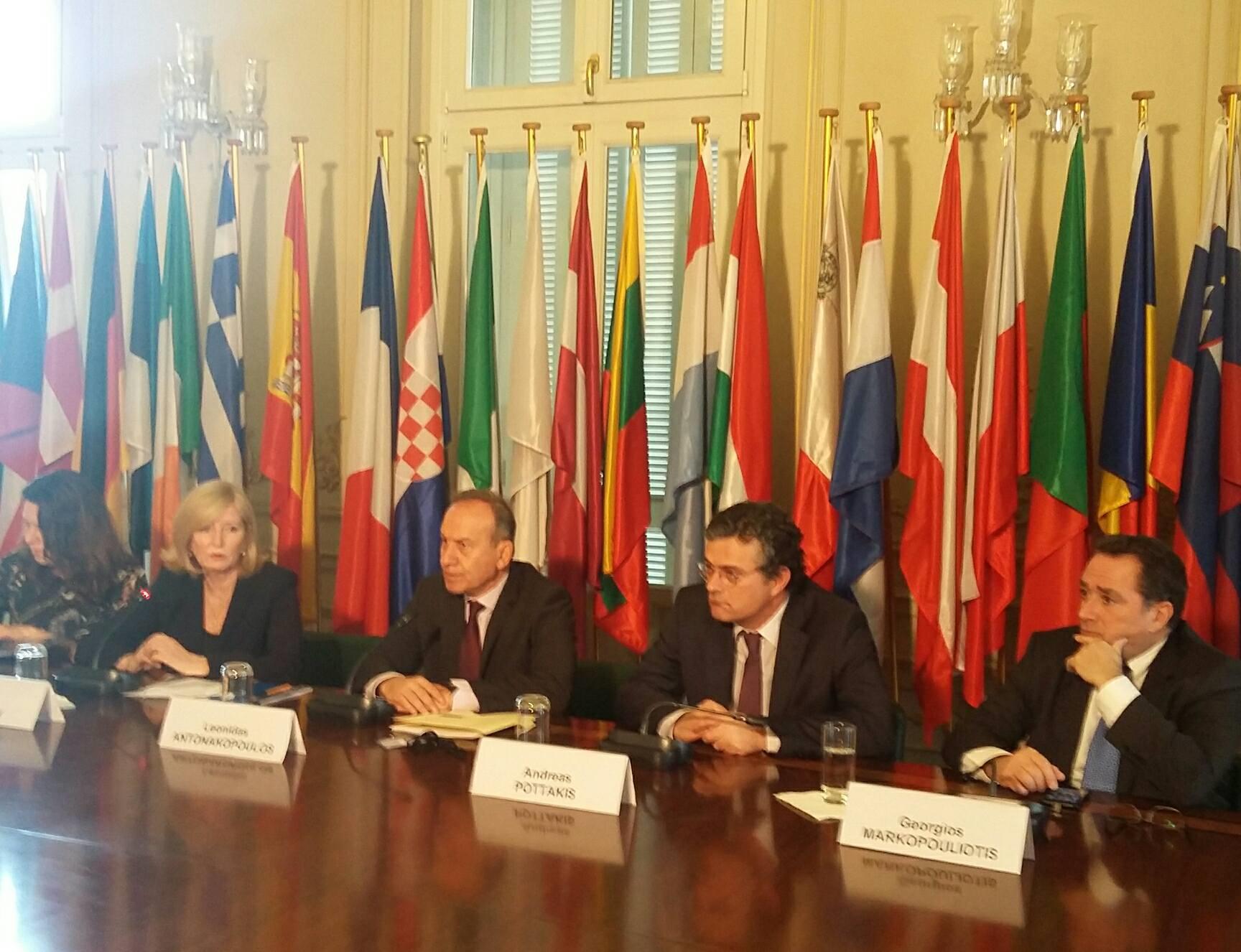The role and contribution of the European Ombudsman in promoting democratic accountability and transparency in European institutions was highlighted by the Head of the organization, Emily O'Reilly, in an exclusive interview with European Business Review
by
Eirini Sotiropoulou
Mrs. O' Reilly took up her duties as European Ombudsman in October 2013. She was the first female Ombudsman and Information Commissioner in Ireland. She is an award-winning political editor, journalist and writer.
European Business Review: What is the role and the mission of the European Ombudsman regarding transparency? Do you think that the European institutions have taken the appropriate measures to promote it?
European Ombudsman: Sometimes 13% of the complaints that we deal with are related to transparency and that could be access to documents or information regarding conflict of interest issues. So, it is a big part of the work that I do and I try hard to promote, because it is a core value within the EU system. I think the transparency of the institutions has improved significantly the last few years. Certainly, the Juncker Commission has made significant improvements in terms of making the work that it does and being more open.
And this is very important because when people are in member states, it’s very difficult for them to see what’s happening in Brussels. Thus, the more that is out there, the more that is easily accessible by the media, the civil society or the citizen’s themselves, the better it is. Especially when there is a crisis of trust in the EU institutions, then it is important for them το be as open as they can be regarding the work that they do, if they want to regain, retain, improve citizen’s trust.
EBR: Which are the main problems mentioned by the European citizens in their complaints?
E.O.: Well, it’s a wide range of issues. Transparency is an issue, sometimes people who have contracts for supplying the agencies, the institutions with goods and services. Moreover, people often complaint about procurement issues or that the Commission has failed to take enforcement action in relation to a particular matter.
Last but not least, there are young people who have been trying to get into one of the European institutions and they may not have been successful. So, if they feel that the process has been unfair, they come to us. And I suppose the most important thing about my office is that it is free, accessible and of course independent.
EBR: What is your view regarding the refugee crisis in Greece and how can the European Ombudsman contribute to effectively address this thorny issue?
E.O.: As you know, it is a multifaceted issue that ultimately has to be dealt with politically and of course you are aware of all of the political arguments over the last years in relation to member state responsibility and the fair sharing of responsibility for the migrants and asylum seekers. In this context, I involve myself at certain levels.
For example I’ve done a lot of work with the FRONTEX, with the border agency, in relation to watch if they comply with their obligations under the charge of fundamental rights. Furthermore, I’ve looked at the EU-Turkey deal regarding the return of people to Turkey, emphasizing on the human rights aspect. And of course I’ve worked with the member state office, including Mr. Pottakis, who has a lot of involvement as the Greek Ombudsman, supporting the work that we do.
The need for accessibility, accountability and transparency
The institution of the European Ombudsman was established by the Maastricht Treaty and has been activated since 1995. It investigates complaints concerning maladministration in the institutions and bodies of the European Union. In this context, it regularly visits Member States in cooperation with the European Network of Ombudsmen.
«We receive an average of 2,000 complaints each year, which may concern any EU institution.
Most of them are related to the Commission’s action such as contracts, ethics, conflicts of interest issues, etc. However, some complaints are beyond our reach and as a result, they are being returned to the member states», Mrs. O'Reilly stated at a press conference held by the European Parliament Information Office in Greece on Wednesday (21 February).
Furthermore, she added that: «Most of the complaints we receive from Greek citizens concern the institutional status of the Troika. However, we are not limited to this issue. For example, there are several complaints about the protection of the designation of origin and geographical indication of feta cheese or the refusal of the ECB to disclose data concerning the emergency liquidity assistance (ELA) for Greece and other member states».
«In any case, we need to have full awareness of our rights as European citizens with direct access to information», Mrs. O’ Reilly stressed.
For his part, the Greek Ombudsman, Andreas Pottakis, welcomed the European Ombudsman in Greece and praised the work of the organization. «When you fail to solve a citizen's problem, it is equally important to give him/her a sense of understanding what his/her rights are. Thus, through providing information, we have the opportunity to learn how we can exercise our rights».
Indicatively, some of the most demanding complaints that the EU watchdog addressed, among others, were:
-The involvement of the President of the European Central Bank, Mario Draghi and members of its decision-making bodies in the private organization, «Group of Thirty» based in Washington D.C. The inquiry concerns whether the President of the ECB should continue as a member of the «G30» and whether he and the members of the ECB’s decision-making bodies should continue to participate in G30 activities.
According to the Ombudsman, the ECB President’s continued membership of the G30 could undermine public confidence in the independence of the ECB.
-The European Commission’s reaction about the fact that its former president, José Manuel Barroso, accepted a senior job at the allegedly toxic investment bank Goldman Sachs. The independent ethical Committee acknowledged that reputational damage was done both to the Commission and to the wider EU yet states that, legally, Mr. Barroso did not breach the Code of Conduct. In addition, it pointed out that it was not its role to determine if the Code of Conduct was sufficiently strict.
Asked by journalists about the informal European bodies, such as the Eurogroup, the European Ombudsman underlined that: «What we are seeking is enhanced transparency. For this reason, the Eurogroup agenda is published and a formal communiqué is issued. Until Eurogroup becomes an official institution, there will always be the responsibility and accountability aspect».
At the same time, she pointed out that the European citizens tend to misinterpret the Eurogroup as it is widely regarded as an official institution. Therefore, people have the same expectations and requirements as in the other European institutions. «In the run-up to the next European elections in 2019, I think many of these issues will be combined», she concluded.
The European Ombudsman visited the reception center for refugees and immigrants in Eleonas, Athens.




